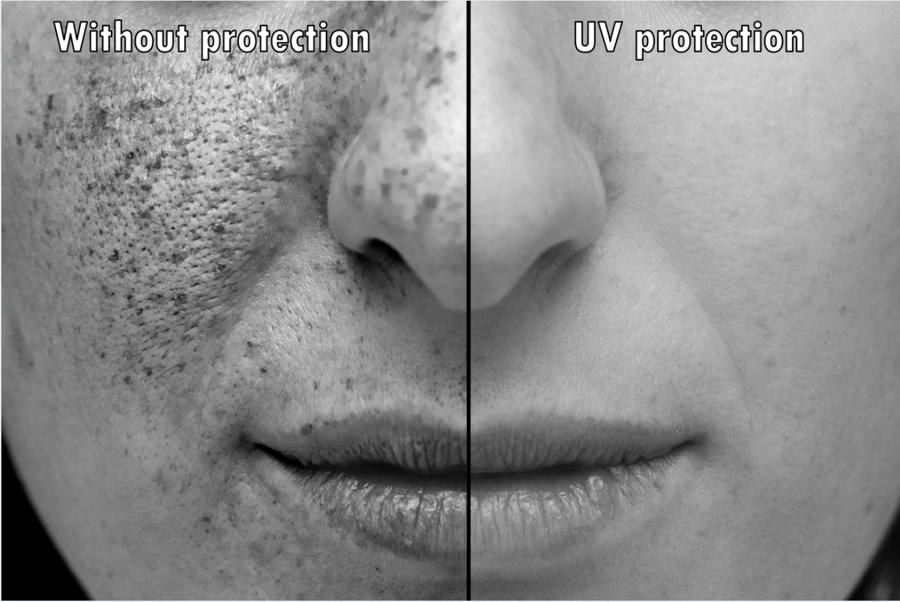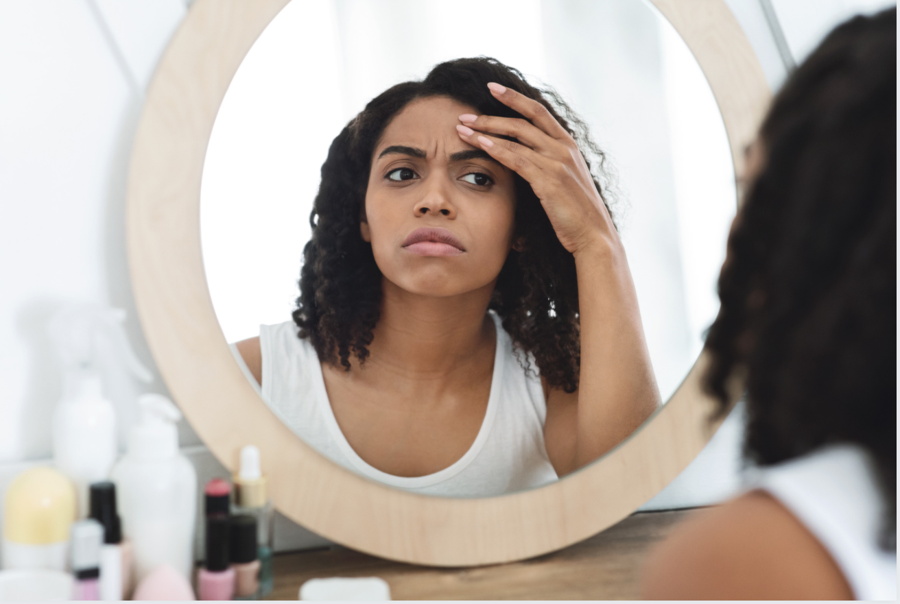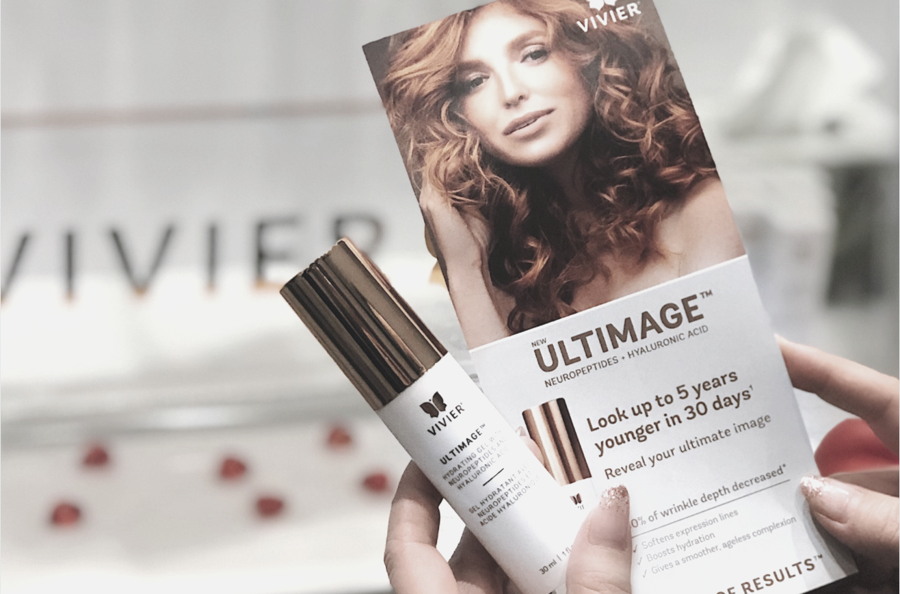Are you taking proper care of your body’s largest organ?
You guessed it! That organ is your skin. Many factors impact how healthy your skin is—some of which you have no control over. These intrinsic factors include genetics, aging, hormones, and medical conditions like diabetes.
Extrinsic factors refer to lifestyle factors, which you more or less do have control over. Examples include diet, hydration, sleep hygiene, smoking, and sun exposure.
So, what does your skin reveal about your lifestyle?
In this article, HealthOne dives into the top six lifestyle factors that affect your skin health. We also review the key differences between types of skincare products. Keep reading to learn our top prescriptions for beautiful, radiant skin.

Diet
The first step of a skin-healthy diet is to avoid foods that contribute to chronic oxidative stress. This can result from a poor diet that is high in fats, sugars and processed foods. They contribute to aging on a cellular level.
These foods may also worsen skin conditions like acne by inducing an inflammatory response. Studies also suggest that dairy products can contribute to a blemished complexion.
Instead, opt for foods that are rich in antioxidants and Omega-3s. Fruits and vegetables are a great source of essential antioxidants. The body cannot create certain vitamins and minerals, which is why you need to get them through your diet.
Mangoes, tomatoes, and green tea all show promising results for skin health. The antioxidant properties of mangoes help protect your skin’s collagen. The lycopene found in tomatoes may be responsible for protecting against skin cancers induced by UV light exposure.
Green tea is one of the biggest anti-aging powerhouses of all. It contains polyphenol compounds that rejuvenate dying skin cells.
It's still important to supplement your diet with a protective, topical solution. No food alone is going to protect you from our next aging lifestyle factor.

Sun Exposure
In the late 1800s, a German scientist observed “severe degenerative changes in the sun exposed areas of the skin of sailors in his clinic in the German seaport city Hamburg”.
His study, among others, led to the coining of the term ‘photoaging’. This refers to damage such as wrinkles, dark spots, and discoloration that result from long-term sun exposure.
Scientists have determined solar radiation as the main environmental factor that can cause aged skin. Sun-damaged skin can also lead to different forms of skin cancer.
There are many ways to protect yourself from the harms of UV radiation. HealthOne recommends Vivier's variety of products that contain SPF.
It is oil-free facial moisturizer that provides baseline UV protection. It also helps to improve, hydrate, and nourish the skin. Coming in at $86.00, it is an ideal pharmaceutical-grade product suitable for ALL skin types.
We recommend this product if you do not spend much time in the sun day-to-day. If your lifestyle involves being in the sunlight often, try Viver’s Daily Age-Defying Moisturizer. It can be used to seal in hydration first, followed by Vivier's Sheer Broad Spectrum SPF 45.

Smoking
Many people are aware that smoking leads to a wide range of health issues. This can also include issues for your skin. In 1969, Dr. Harry Daniell observed stark differences between the skin of smokers and non-smokers. Those who smoked looked older and more wrinkled. Such conditions were only exacerbated by heavy sun exposure.
It’s no question in our day and age that smoking ages skin. When you smoke, the blood vessels in the outer layer of your skin compress. This deprives your skin of the nutrients and oxygen it needs.
Furthermore, smoking may reduce your skin’s elasticity. This is due to its damaging effects on collagen production. Abstaining from smoking is one of the most preventable lifestyle choices you can make for your skin. Click here for resources on how to quit.
Sleep
Millions of people around the world struggle to get enough sleep. Chronic sleep deprivation is linked to a host of ills including obesity and immune deficiency. However, many are not aware of how this impacts skin health.
People with poor quality of sleep can have higher signs of premature skin aging. Their skin can also have a lower ability to repair itself at night from environmental factors, like sun exposure.
You should aim for at least 7 to 8 hours of sleep per night. This will allow your body to reset itself and heal properly, which has amazing benefits for regenerating your skin. Proper sleep is also essential to collagen production. Adequate amounts help to maintain skin tightness.

Hydration
One of the main functions of your skin is to seal in moisture. This means taking care of the skin cell layers that make up your skin barrier. If your skin appears red or feels dry, itchy, or flaky, there’s a good chance you’re dehydrated.
There are many ways to achieve more hydrated skin. Start by avoiding harsh soaps and detergents. They can strip your skin’s natural moisture barrier. Use warm water instead of hot when cleansing your skin. You should also aim to stick to a daily moisturization regimen that starts instantly when you get out of the shower.
Stress
Stress can negatively impact your skin because it stimulates the release of cortisol. This causes the skin’s collagen and elastin to break down, which can cause wrinkles.
With that said, you can imagine how detrimental a chronic state of stress would be to your body. Chronic stress also induces inflammation and impairs the body's ability to heal.
Stress contributes to overactive sebum production, which especially affects young adults going through puberty. It’s no wonder why that nerve-wracking exam or prom night is often accompanied by a less-than-ideal complexion.
The best way to combat stress-related skin problems is to combat stress itself. Make time for long, thoughtful walks. Try yoga, Zumba, or a spin class. Do whatever you can to mitigate stress. You can then compliment these lifestyle approaches with a pharmaceutical-grade line of products like those offered by Vivier.

Choosing the Right Skincare Products
You might be thinking, “I’ve tried every product out there, and still have skin problems.” How can you know that it does what it says on the label? With most cosmetic products, you will not get a stamp of approval from an accredited health source. You might be spending money on something that:
- Has no regulatory standards
- Has no verifiable therapeutic claims
- Can utilize ingredients of any quality, in any quantity
- Has no accreditation from a certified Health Authority, like the FDA
This is why you should choose products manufactured by a licensed pharmaceutical company. Products such as those from Vivier are:
- Manufactured for use as medicinal drugs making therapeutic claims
- Quality-tested and standardized
- Inspected by the FDA and Health Canada
- Fully disclosed to physicians
Just remember, there are tons of great skincare products, but quality and labels matter. Pharmaceutical products, like our recommendations from Vivier, will deliver the beauty of results.
Improving your lifestyle and choosing pharmaceutical skincare products will put you on the path to healthier skin and a healthier you.
At HealthOne MediSpa & Skin Clinic, we’re here for all of your skincare needs. We want to help you look and feel your best. We provide both medical and cosmetic dermatology services, and all sessions begin with a free consultation before any service is performed. Our goal is for everyone to live an inspired life with optimal physical, mental, and social well-being.



